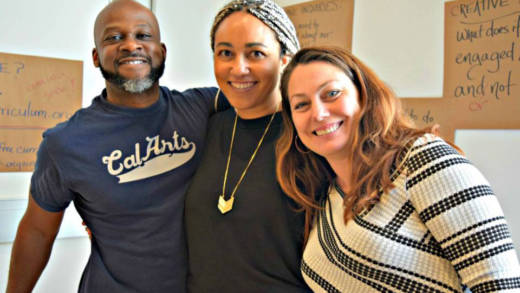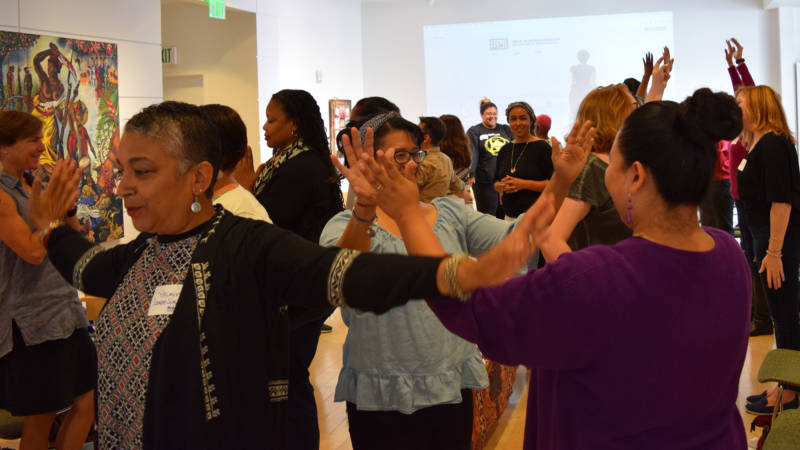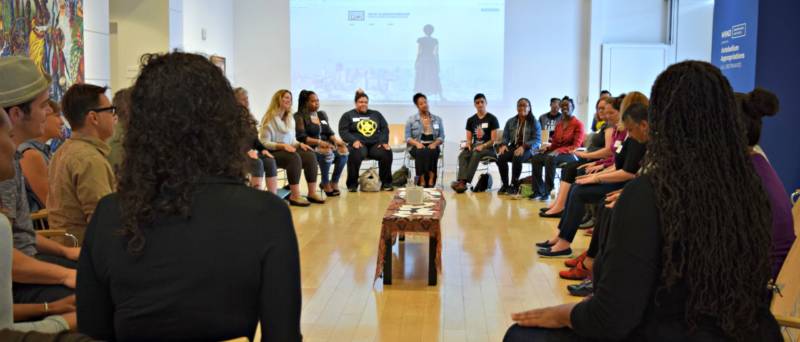Mariah Rankine-Landers wasn’t excited to see the play her friend dragged her to. She had flown to New York for one reason, and one reason, only: Taye Diggs.
At the time, Diggs was starring in a Broadway production of Hedwig and the Angry Inch, and Rankine-Landers and her friend Jessa Brie Moreno flew across the country to see it. During the trip, however, Moreno bought tickets to another play, one Rankine-Landers hadn’t heard of: Hamilton.
When the curtains went up, Rankine-Landers noticed that the cast looked like her — a rarity in the theater world. Great, she thought, another musical starting with a slave song. Soon, though, she realized that the black actors in this play weren’t relegated to typical disenfranchised roles: they were the protagonists. She felt tears in her eyes, remembering all the times she had been told that she couldn’t play dress-up in historical costumes. “In that moment, she said, “I realized, ‘The world is changing.’”
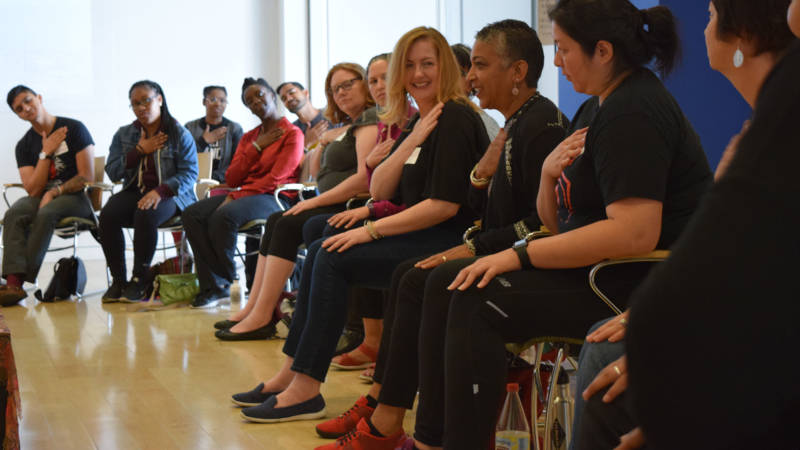
On Saturday morning, Rankine-Landers told this story to a group of about 25 teachers at the Museum of the African Diaspora. Rankine-Landers is part of Rise Up!, a group developing curriculum for educators using Hamilton as a teaching tool. Weeks before the group’s website with public resources goes live, the teachers, armed with notebooks and coffee, were there to learn how to take advantage of the cultural zeitgeist.
For students, the play’s themes of revolution and power have taken on a particular significance since the election. “What’s changed is young people have a new and vital response to civic action,” said Marc Bamuthi Joseph, who developed the day’s curriculum with Rakine-Landers. Joseph is the Chief of Program and Pedagogy at Yerba Buena Center for the Arts (his title, he joked, is “what happens when poets name themselves”), whose introduction to the play came from Daveed Diggs. One of the musical’s breakout stars, Diggs’ last pre-Hamilton role was in Joesph’s own choreopoem Word Becomes Flesh.
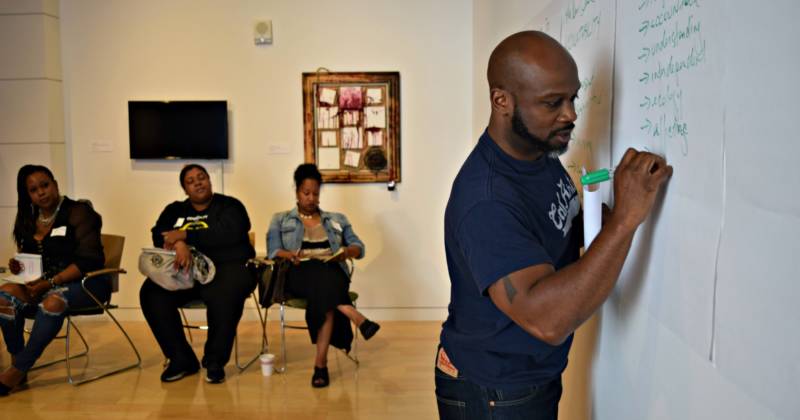
“I’m so nervous,” Rankine-Landers said before the event, tapping at a laptop. “I hope that they’re piqued.” The Rise Up! Curriculum encourages educators to have their students tie their personal experiences, their own revolutions, to the American Revolution. To model that, Rankine-Landers and Joesph had to ask the teachers deep, uncomfortable questions about their lived experiences. One of Rankine-Landers’ goals for the day was encourage educators to become comfortable with the uncomfortable.
